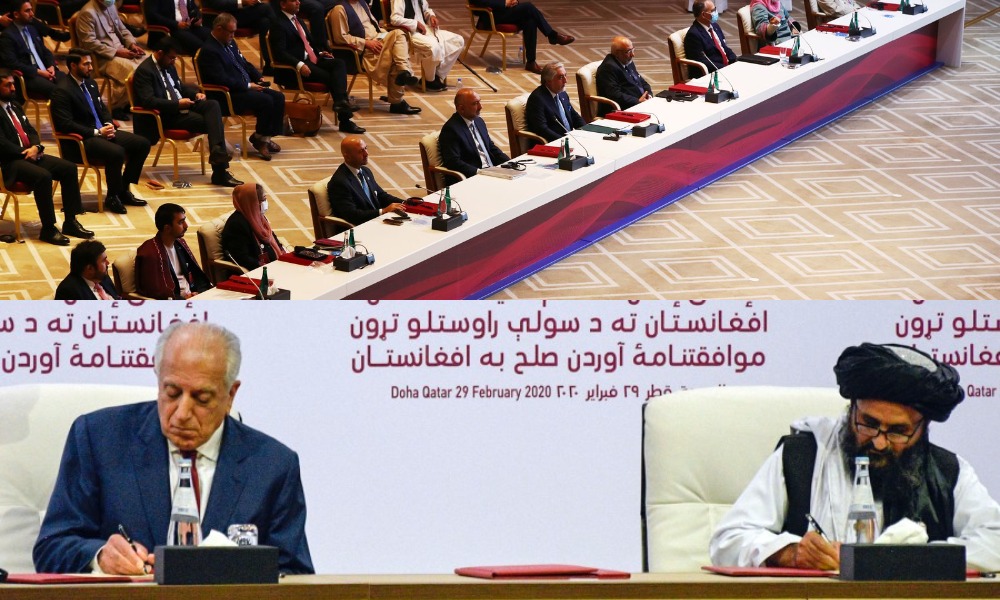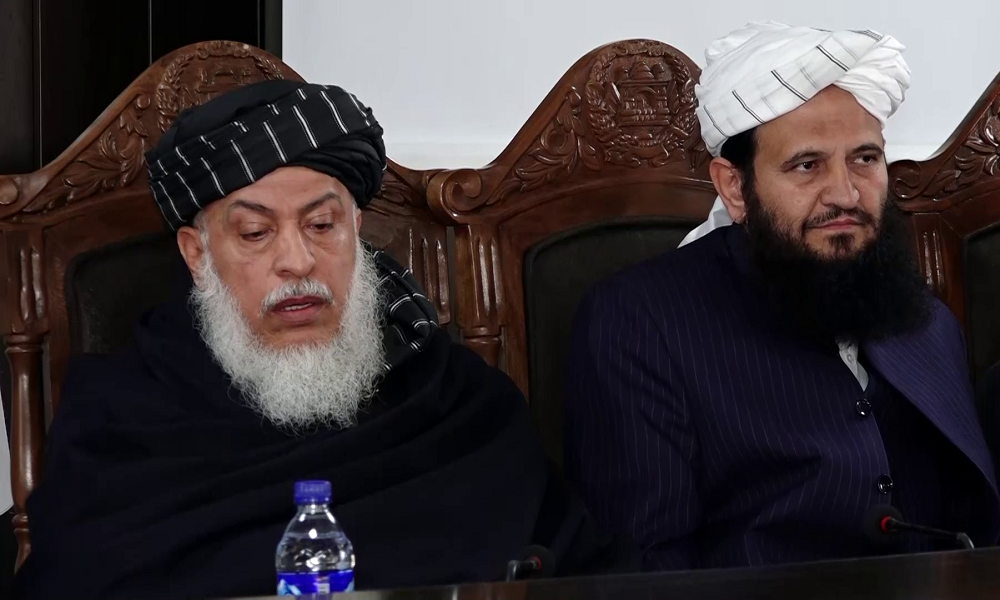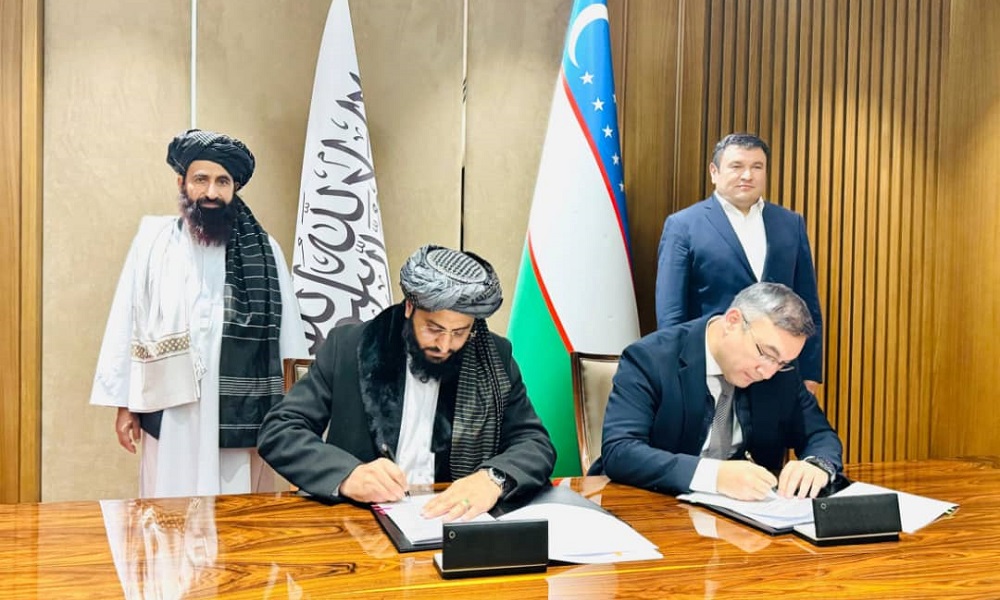Latest News
ICG spells out US policy challenges involving peace talks and Taliban

While peace talks present an opportunity for the US to extricate itself from a decades-old conflict in Afghanistan, they will also pose one of the greatest foreign policy challenges for the Biden administration, the International Crisis Group reported in its latest briefing this week.
The ICG stated that after the February 2020 deal between the US and the Taliban, peace talks took six months to start - and have only inched forward slightly. According to the group in light of this, “it is far from clear where negotiations are headed.”
The group pointed out that in accordance with the agreement, the US agreed to withdraw international forces from Afghanistan in return for the Taliban cutting ties with terrorist organizations, reducing violence and entering negotiations with Afghanistan.
But while violence levels have remained high, it has also emerged that there are wide divergences among negotiating parties on substantive issues and the Taliban are resistant to scaling back attacks while talks proceed, the group’s briefing read.
“At the moment, discussions are virtually stalled while the parties wait for signals from the new US administration on its commitment, or lack thereof, to the nascent peace process.”
The ICG stated that a political settlement is the best solution and that there is a path open to achieving this - albeit a narrow path.
They urged the Biden administration however to urgently signal its commitment to continue supporting the peace process.
The group stated: “President Biden has little to lose in continuing to test the feasibility of reaching a political settlement. Conversely, an abandonment of negotiations would incur high costs: the likely return of the Taliban to unrestricted warfare (including targeting US personnel), as well as the loss of at least tacit support for US policy from Iran, Pakistan, Russia, China and other neighbours.”
But with this in mind, the ICG said the Biden administration will need to seek an extension to the troop withdrawal deadline.
“This is not enough time for the new administration to set its policy course and evaluate Taliban compliance with the counter-terrorism assurances it provided in the February deal.
“Nor is it sufficient time for the Afghan parties – who, for instance, spent three months negotiating a brief set of procedural rules for talks – to notch any meaningful agreements,” the group stated in its briefing.
They suggested this be extended by at least six months - also as the new administration needs to establish a regional diplomatic framework to support the peace process and the outcome of any peace settlement.
ICG pointed out that the new Biden administration also needs to determine whether it intends to maintain an indefinite, if small, military presence in Afghanistan for counter-terrorism purposes.
“A decision in favour of a persistent military presence would, at some point, be the death knell of the peace process because the Taliban are unlikely to consent to it,” ICG stated.
In addition, Russia, China and Iran would reject a continued US presence and could take steps to complicate it, the group stated.
“For Biden to keep troops in Afghanistan under those circumstances would make his administration the author of the next chapter of the so-called forever wars that began after the 11 September attacks, which will enter their third decade later this year,” the group stated.
However, it was suggested that the Biden administration’s top priority should be to keep the peace process going and buy the time it will need to face the decisions coming its way.
Latest News
There should be no distance between media and government: Stanikzai

Sher Mohammad Abbas Stanikzai, the political deputy minister of foreign affairs, says media outlets should be supported in a way that there is no distance between them and the government.
Stanikzai, speaking at a seminar titled "The Role of Media in Strengthening the Islamic System" in Kabul, added that the media plays a crucial role in global propaganda wars, and it is necessary for the IEA to cease exerting pressure on the country's media and allow them to freely play their role in the development and prosperity of the country.
"The problems of the media should be heard, their voices should be heard, and the environment should be conducive for them to carry out their work freely,” he stated.
He further emphasized that the views towards the country's media should be such that both sides do not view each other as strangers, and the IEA should refrain from exerting pressure on the media and allow them to operate with freedom.
Meanwhile, officials from the Ministry of Information and Culture also stated at the seminar that they have not adopted an approach of confrontation with the media and that the ministry is committed to collaborating with them.
Participants in the seminar also urged the media to spare no effort in reflecting a positive image of Afghanistan to the world.
This seminar was held at a time the media considers itself committed to freedom of expression and reporting activities within the framework of national interests and Islamic values.
Latest News
DABS signs contract to purchase electricity from Uzbekistan for 2025

Da Afghanistan Breshna Sherkat (DABS) has announced that a contract for the purchase of electricity from Uzbekistan has been signed for the year 2025.
This agreement was signed following a visit by an Islamic Emirate delegation, led by DABS CEO Abdul Bari Omari to Tashkent, where they engaged in discussions with Uzbek officials.
"The General Director of Da Afghanistan Breshna Sherkat, along with a delegation, traveled to Uzbekistan and signed the electricity purchase agreement for 2025 during a meeting with officials from the Uzbek electricity sector,” said DABS spokesman Hekmatullah Maiwandi.
Meanwhile, some investors have urged IEA to engage with Uzbekistan regarding the 500-kilovolt electricity project and to ensure the swift completion of this project.
Once completed, the project is expected to alleviate some of the electricity shortages in the country.
Tajikistan agreement
Late last month, Tajikistan's national electric power company, Barqi Tojik, and DABS signed a similar agreement, which will see Tajikistan supply Afghanistan with power through 2025.
The signing ceremony was attended by Mahmadumar Asozoda, General Director of Barqi Tojik, Omar.
According to Barqi Tojik's press secretary, Kurbon Ahmadzoda, the agreement is expected to be extended annually until 2028.
However, the electricity export will reportedly be limited to the summer months, from May to September, and will be dependent on the availability of electricity within Tajikistan's domestic market, Tajik media reported at the time.
Powering a future
Afghanistan currently produces only 20% of its energy needs, while 80% of its electricity is imported from Uzbekistan, Tajikistan, Turkmenistan, and Iran.
The Islamic Emirate has however made it a priority to encourage domestic production of power since regaining control in August 2021.
Omar has met with potential investors on numerous occasions and has encouraged them to invest in the sector.
One such meeting was held in August with officials from Bayat Power.
Bayat Power is Afghanistan’s largest private Electric Power Production and Development Company and owns and operates Bayat Power-1, the first in a new generation of Gas to Electricity power generation plants.
Bayat Power is hoping to start work soon on Phase 2 of Bayat Power-1 in northern Jawzjan province in order to increase electricity production output for Afghanistan.
Mohammad Shoaib Sahibzada, the technical head of Bayat Power, has said that once Phase 2 is complete, electricity production will increase from 40 to 100 megawatts.
Sahibzada said Bayat Power's natural gas to electricity generation project will eventually produce up to 250 megawatts of electricity once Phase 3 is complete.
Bayat Power has produced over one billion kilowatt hours of electricity in just under five years after starting commercial operations in late 2019.
Sahibzada said that over the past five years, the company has also worked on capacity building of its technical employees.
Leading the way
Bayat Power is the first private company in 40 years to produce electricity from natural gas in the country and the multi-million dollar plant uses Siemens Energy’s SGT-A45 mobile gas turbine for its economic efficiency, flexible deployment, and power density.
Currently providing electricity to hundreds of thousands of end-users and generating more than 300 million kWh annually, the project was structured as an innovative public-private partnership between Bayat Power, Siemens Energy, and Afghanistan government entities such as the
Ministry of Mines and Petroleum, the Ministry of Energy and Water, and the General Directorate of Afghan Gas Corporation Company, Da Afghanistan Breshna Sherkat (DABS), and international partners.
The Bayat Group is the largest private investor in Afghanistan and Bayat Power is currently the only gas-powered plant in the country.
The Siemens Energy’s SGT-A45 mobile gas turbine used by the company is the only one in operation in the world.
Latest News
ATN’s hat-trick! Rights in place to broadcast ICC World Test Championship 2023/25 Final

Ariana Television and Radio Network (ATN) has done it again! This time it secured the rights to broadcast the ICC World Test Championship 2023/25 Final in Afghanistan.
The 2023–2025 ICC World Test Championship is an ongoing tournament of Test Cricket which is the third edition of the ICC World Test Championship.
This event started in June 2023 with The Ashes, which was contested between England and Australia. It will finish in June 2025 with the final match planned to be played at Lord's in London.
The tournament consists of 27 series and 69 matches in the league stage between nine countries. The top two teams in the points table will compete at the final.
Current State of Play
A draw this week in the third Test between Australia and India has spiced up the race to the World Test Championship Final especially as Australia and India continue to play catch-up with South Africa after the rain-truncated third Test in Brisbane ended in a stalemate.
South Africa had to dig deep against Sri Lanka recently, but a standout all-round performance helped them secure a series win and pushed them to the top of the standings, placing them as the front-runners for the WTC25 Final at Lord’s.
Alongside South Africa, Australia and India, Sri Lanka remains the only other team in contention for a WTC25 Final spot. However, they will need a string of favorable results - including a successful showing in their upcoming two-match series against Australia in January - to keep their hopes alive.
South Africa is top of the standings with a PCT of 63.33. They need to win one out of their two upcoming tests against Pakistan to reach their maiden ICC WTC final.
Australia and India are in second and third place respectively.
India has a PCT of 55.88 and two tests left, both of which they need to win to secure a place in the final.
Australia’s PCT is 58.89. After two tests against India. They have two more tests in Sri Lanka.
For cricket fans across the country, make sure you follow us on social media, and watch this spot, for updates and announcements on this event - along with other exciting tournaments coming up next year that Ariana Television will be bringing to you live and exclusively in Afghanistan.
-

 Latest News4 days ago
Latest News4 days agoAfghanistan seals T20I series victory over Zimbabwe
-

 World5 days ago
World5 days agoSyrian clerics in former Assad stronghold call for national unity, democracy
-

 Latest News4 days ago
Latest News4 days agoU.S. sentences Afghan man to 30 years in prison for narco-terrorism and witness tampering
-

 International Sports3 days ago
International Sports3 days agoMessi vs Ronaldo: A look at their market values over the years
-

 Latest News4 days ago
Latest News4 days agoInvestment in Afghanistan’s pharmaceutical sector reaches $300 million: Union
-

 Latest News5 days ago
Latest News5 days agoChinese, Tajik officials discuss Afghanistan
-

 Sport4 days ago
Sport4 days agoAfghanistan’s Gulbaddin Naib fined 15% of match fee for dissent
-

 Regional4 days ago
Regional4 days agoHezbollah chief says group lost its supply route through Syria
























